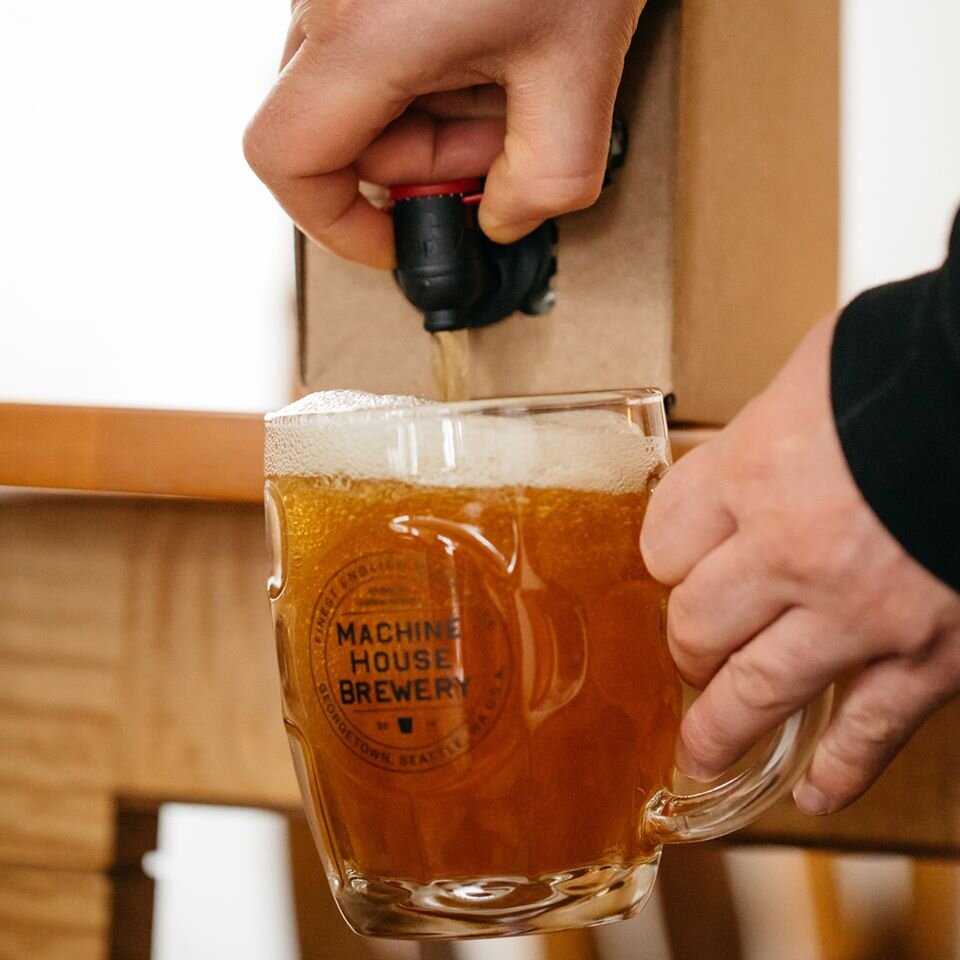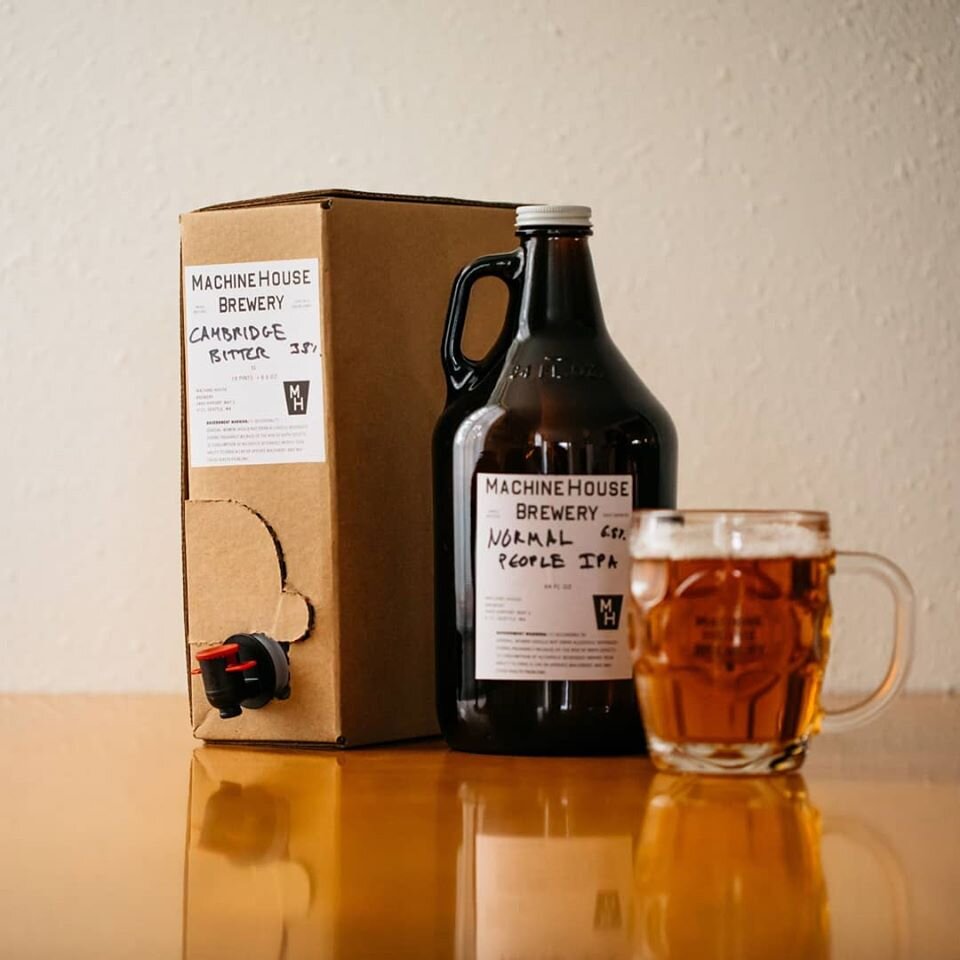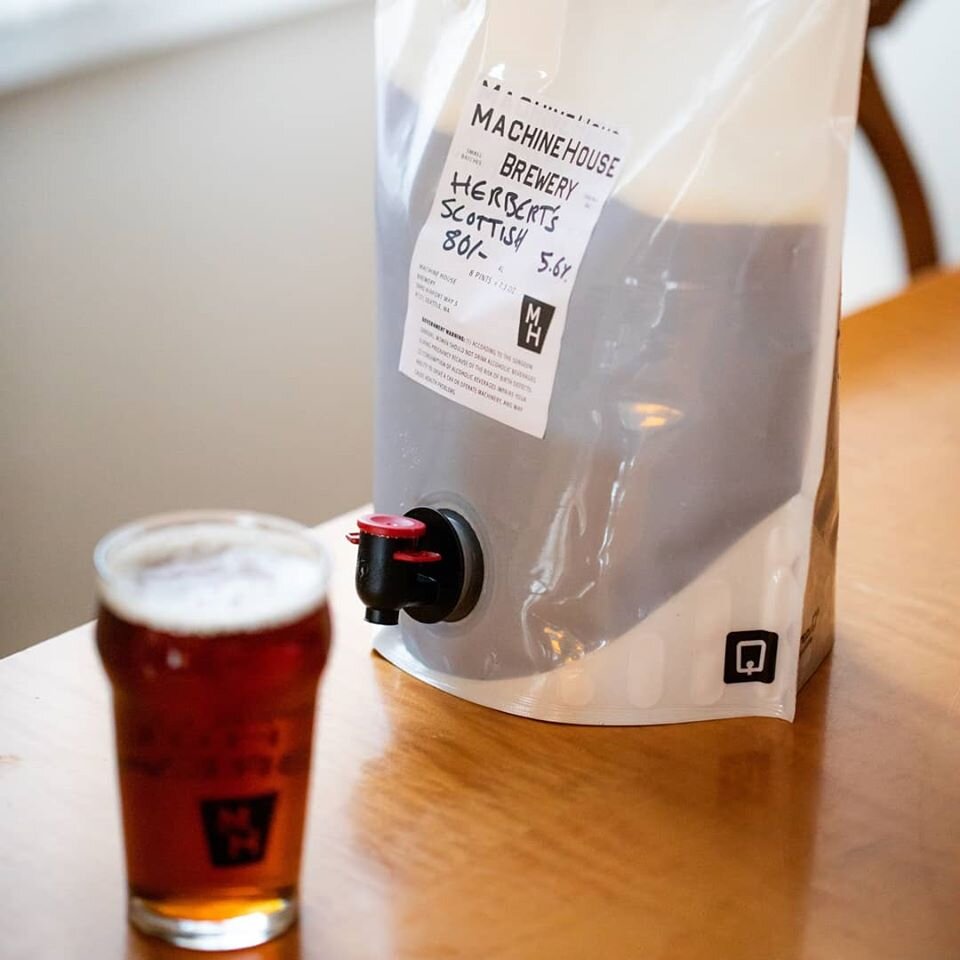A Mobile Solution for Cask Beer To-Go

Seattle, Washington's cask beer heroes at Machine House Brewery have launched a cask beer to-go program with Astrapouch's Bag-in-Box packaging. Though the brewery is still trialing the service, Machine House will be delivering a shipment of 5-liter fresh filled boxes to Portland via Alebriated Distribution this week.
"My experience so far (I have been testing a lot at home) is that it is a really, really great gravity-pour cask ale experience, for 2-4 days, if served somewhere close to cellar temperature (50-55F)" says Machine House founder and brewery manager Bill Arnott.

Cask beer is traditionally served only in specific types of kegs that allow for natural conditioning process in the vessel, similar to bottle conditioning at low levels. Authentic cask beers are not pressurized for carbonation, but a little bit of live beer is added at kegging to give it a bit of an oomph of natural carbonation which is called krausening. Cask beer is served on hand pumps or by gravity pours, neither using extraneous carbon dioxide. Cask beer is historically served at warmer temperatures than typical beer and requires additional logistics to serve properly.
"I have never been satisfied with growlers for cask beer, cans or crowlers don't particularly make sense for cask," says Arnott.
To keep his beer in optimal condition for consumers to take home, Arnott purges each bag bladder with CO2 before racking the beer in from casks. No gas is used to pressurize the beer into each bag but a bit of head space is left for the beer to off-gas as the pouch is being emptied. Arnott shoots for a slightly higher 1.2 - 1.6 volumes of C02 carbonation in each bag. The pressure in the beer-in-a-box bags will only barely drop over time as the beer releases C02 into the headspace of the collapsing bag.
"Its kind of just like pouring cask beer in a pub the traditional way, without CO2 and a cask breather," says Arnott. "The beer is optimum freshness and carbonation in the beginning, but loses carbonation as it is served over several days. The only difference is that while the carbonation drops, the freshness is retained as it is not being exposed to air this way."
In England, where cask beer originated and still has a significant following, it's not uncommon for brewers to use poly-pins for to-go real ale. Arnott worked at Tipples Brewery in Salhouse, Norwich in the UK and had filled quite a few poly pins but wanted to figure out how to make the system work best for Machine House's ales. Arnott was already researching new methods to serve his beer off-premise and in larger volumes than bottles before the Coronavirus entered Washington like a freight train.
"I instantly bought a bunch of supplies from astrapouch so I could quickly start racking finished cask beer into bags and selling it that way," says Arnott. They seem to work really well initially, but given the lack of time for testing etc we are currently trying just to have them filled and supplied to customers within a few hours."
That means for Seattle-area residents that Machine House is doing pre-orders online for their cask beers in a box. The brewery would like to fill them fresh each day and have them in customers hands within a few hours. This makes distribution difficult for anything further than a day or two journey.

If we are lucky, a Portland shipment may become weekly-ish. For now, Arnott is filling the bag-in-box cask beers right before they head to the city today or tomorrow. Each 5-liter cask pack equals more than 2 growlers or 1.321 gallons, that will yield about 10.5 American 16oz pints or 8.45 English Imperial pints.
Place your orders and requests for Machine House Bag-in-Box Cask Beers now with your local bottle shops and find it at all the regulars such as The Beermongers, Imperial Bottle Shop & Taproom and Belmont Station.

